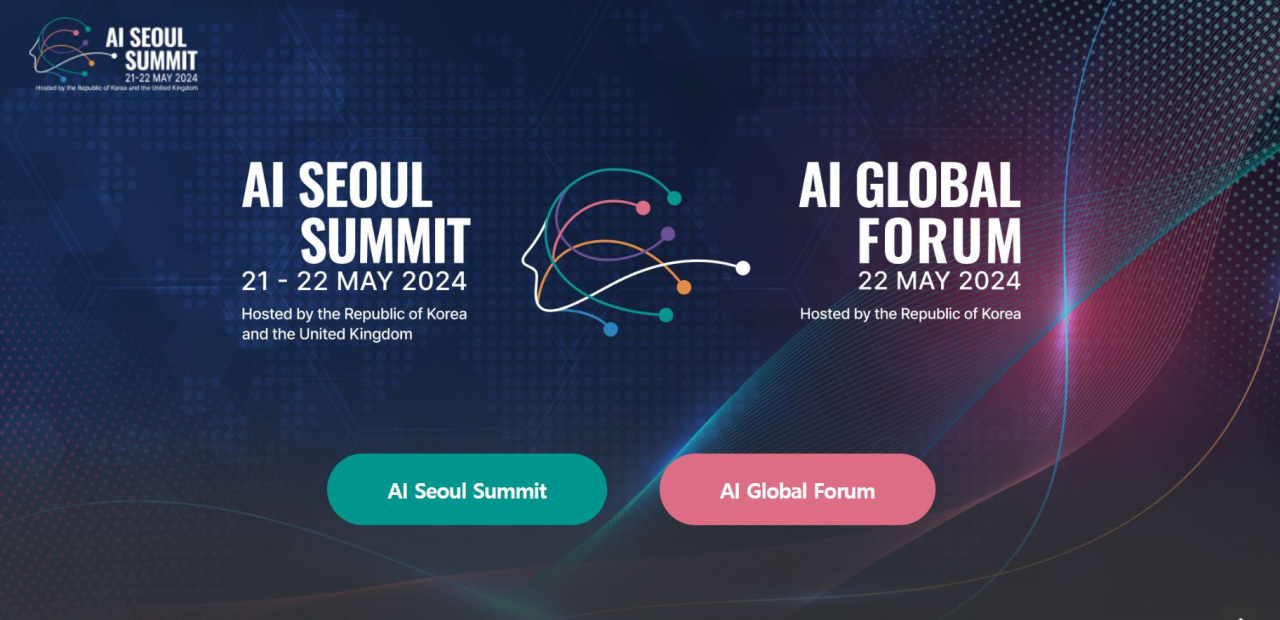 |
A screen grab of a website for AI Seoul Summit |
The AI Seoul Summit may serve as a platform to discuss ways to make artificial intelligence technology equitable in marginalized countries in the so-called "Global South," according to the presidential office on Monday.
From the perspective of AI's inclusivity -- one of the three pillars of the global AI governance suggested in the upcoming event along with safety and innovation -- developed countries taking part in the AI Seoul Summit are to discuss AI's expansion in the Global South, a senior official of the presidential office said on condition of anonymity.
"Narrowing the AI digital divide concerning the Global South ... is part of the agenda," the official said.
The Global South is a term referring to Africa, South America, the Caribbean, Asia excluding Israel, Japan and South Korea, as well as Oceania without Australia and New Zealand, according to the United Nations Trade and Development. The World Economic Forum, a nongovernmental organization, pointed to the "marked gaps" in terms of the AI readiness between the Global North and the Global South in a post in January.
The official also said the safety of AI has to do with national security and therefore should be seriously addressed in the upcoming summit.
"Fake news and false information, especially fake news generated by AI-powered deepfake technologies are now becoming a threat to freedom and democracy from our perspective," the official said.
On Tuesday, South Korea and the United Kingdom will cohost a second global AI summit in Seoul, as a follow-up to the first one hosted by the UK at Bletchley Park in November.
President Yoon Suk Yeol and UK Prime Minister Rishi Sunak will host a virtual summit of leaders from Group of Seven nations plus Singapore, Australia and heads of the UN, European Union and the Organization for Economic Cooperation and Development on Tuesday, according to Yoon's office.
Wang Yun-jong, third deputy director of the presidential National Security Office, said the leaders' session "will focus more on responding to the related risks and negative side effects of AI."
This will be followed by an in-person meeting of digital ministers from the two countries Wednesday, as well as the AI Global Forum, at the Korea Institute of Science and Technology in Seoul.
Wang said that this year’s summit will expand the agenda to include innovation and inclusivity on top of safety.
"Building upon discussions from the UK summit while also weighing the opportunities that AI can bring, the AI Seoul Summit will present the international community with three principles for AI governance: safety, innovation and inclusivity," Wang said.
Another official of the presidential office, who also asked not to be named, said China will be absent from the virtual summit of leaders, but it accepted an invitation to the ministerial meeting.
The official added that the AI summit will be held roughly every six months, with the next one expected to take place in Europe.







![[Today’s K-pop] Blackpink’s Jennie, Lisa invited to Coachella as solo acts](http://res.heraldm.com/phpwas/restmb_idxmake.php?idx=644&simg=/content/image/2024/11/21/20241121050099_0.jpg)